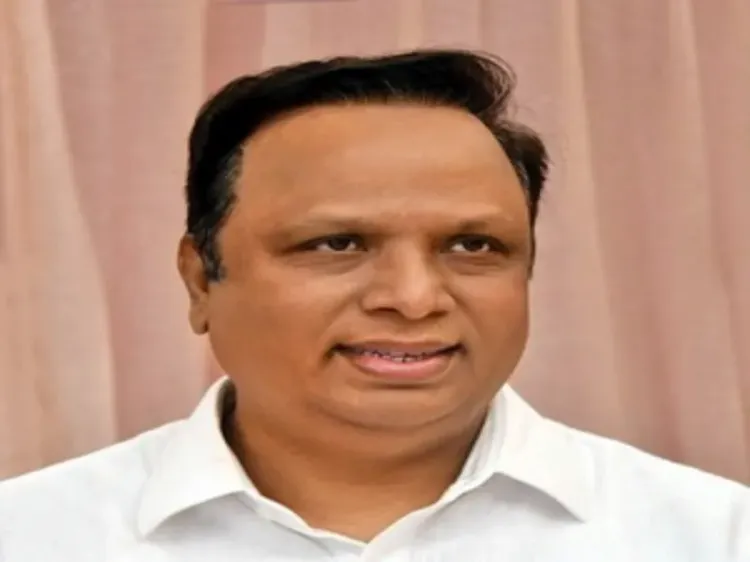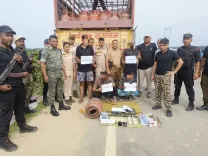Is the POP idol ban lifted a victory for artisans?

Synopsis
A recent High Court ruling has lifted the ban on POP Ganesh idols, a victory hailed by Maharashtra's Minister Ashish Shelar. This decision not only safeguards the livelihoods of artisans but also preserves a cherished cultural tradition. Discover how this legal milestone impacts the community and environment.
Key Takeaways
- High Court ruling lifts ban on POP Ganesh idols.
- Artisans' livelihoods protected through legal means.
- Government to implement eco-friendly immersion solutions.
- Unity among artisans is crucial for cultural preservation.
- Kakodkar Committee supports sea immersion.
Mumbai, June 9 (NationPress) The Maharashtra Cultural Affairs Minister, Ashish Shelar, celebrated the High Court's decision to revoke restrictions on the creation, sale, display, and immersion of POP (Plaster of Paris) Ganesh idols, asserting that this marks a major triumph for countless artisans whose livelihoods are intertwined with this revered tradition.
He noted that a long-standing request from Ganesh idol creators throughout Maharashtra has finally been fulfilled. Minister Shelar commended the collective efforts of these artisans who united to defend their beliefs, maintain their customs, and ensure employment for their communities.
“These artisans engaged in a vital battle not just for their faith and Hindutva, but also to protect their means of income. This is more than a legal victory; it represents an emotional and cultural achievement. The solidarity demonstrated by them embodies the essence of Ganesh worshippers and our profound connection to our heritage,” he remarked.
He emphasized that this ruling came after thorough examination of expert evaluations, including reports from the Central Pollution Control Board (CPCB) and a crucial study led by Anil Kakodkar under the Rajiv Gandhi Science and Technology Commission.
“These reports provided scientific and environmentally sustainable options that enabled us to advocate for a just and lawful resolution,” he stated.
“The court's endorsement of these expert suggestions confirms that the prohibition on producing POP idols has been lifted. Idol creators can now manufacture, market, and immerse these idols, with the government expected to implement necessary eco-friendly immersion arrangements. While provisions for smaller idols are already established in cities like Mumbai, a clear state policy is needed for larger idols used in public festivities,” Minister Shelar stressed.
“We are dedicated to safeguarding natural water bodies and environmental preservation, and our shared goal is to prevent pollution without sacrificing tradition,” he reiterated.
“Importantly, the Kakodkar Committee has indicated that sea immersion is allowed. This pivotal conclusion bolsters our position, and we are ready to continue our advocacy. If necessary, we will once more approach the State Government, the CPCB, and the courts, similar to our previous efforts during Devendra Fadnavis’ administration,” he added.
“With around 60-70% of the challenges faced by idol creators resolved, we will persist in addressing the remaining issues while honoring both devotion and sustainability,” concluded Minister Shelar.





